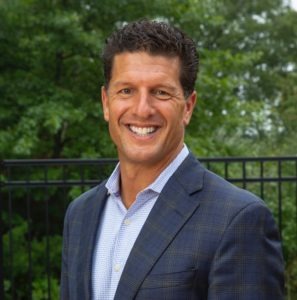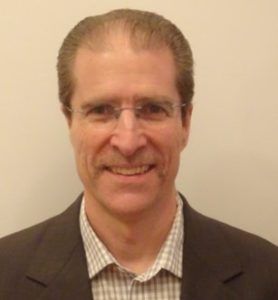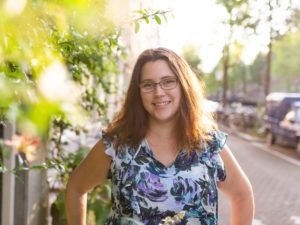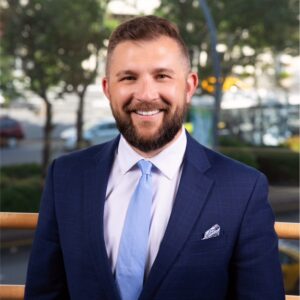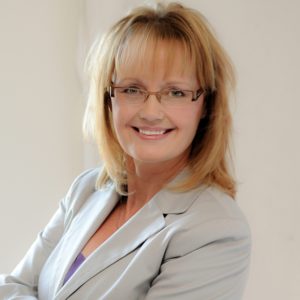Turning seniors into online globetrotters
Elders on a safari? Yes, 10 elders from Pine Grove Nursing Home, affiliated with Pinecrest Medical Center, Powers, Michigan, are on a safari. They are in Djuma Game Reserve, a nature preserve in South Africa, a veritable Noah’s Ark with a giant watering hole where you see many species of animals stop by daily for a drink.
They were also in Virginia’s Norfolk Botanical Garden recently watching a pair of 13-year-old bald eagles remodel their 6-ft.-wide and 4-ft.-deep nest-big enough to hold four chubby first-graders. The majestic couple of the sky had set up residence far from peering eyes, 90-feet up on a loblolly pine, oblivious that in the nearby Nato Tower, scientists had zoom-focused their high-tech cameras to let 10 pairs of aging eyes stare as the eagles laid three eggs in the space of a week. These are just two items on these elders’ travel agenda.
Cybertravel
Turning seniors into online globetrotters within two years is the achievement of feisty Candria Kwak, a Shahbaz (Certified Nursing Assistant [CNA] turned universal worker by the Green House folks), who is their caregiver, friend and, lately, their travel guide. “I knew what I could do. And I saw the opportunity to do it,” Kwak says. She turned their computer into a live, interactive touch screen TV, so the elders could join the live South Africa expedition and experience nature-up close, unedited, and unscripted. They interact with those on the frontline, they instant message them, ask questions, make suggestions, or request a close-up shot. They even chat with simultaneous viewers and experts from other sites.
Just connect the dots
Kwak did not invent anything new nor did she use anything exotic. She had received a grant to buy a computer with a subscription to a Web-based service called It’s Never 2 Late (www.in2l.com), an imaginative platform with immense possibilities for person-centered care. And given her penchant for computers, Kwak could surf the Web as if it was her backyard. She saw the dots, she connected those dots, and a new reality was born.
As a nature lover, she linked her elders to the safari experience offered by Wildearthtv.com. The program, which describes itself as an ecosystem of live wildlife channels and broadcasters around the globe, was initiated by a South African couple in 2007. The site is yours to use for free; in fact, it invites you to share and broadcast your gallery of nature photos. It networks with many partners worldwide, including YouTube, Facebook, Twitter, and the Norfolk Botanical Garden that let Kwak’s globetrotters peek into the private life of the bald eagles, and The North American Bear Center in Minnesota, that brings you face-to-face with a black bear hibernating in her den. And all this is live!
If bears, birds, and bees are not your cup of tea, Kwak will pilot you to www.USTREAM.tv. Here, some elders seem a bit too fond of Deal or No Deal or Wheel of Fortune, while others wake up early to make a beeline to the computer to find that the third eagle egg has hatched.
Social benefits
And then there is Harry Nelson, a farmer all his life. At the ripe age of 85, Kwak lit a spark in him. Ever since being introduced to the computer, he is actively e-mailing, chatting, or expanding his circle of friends on Facebook. Recently, that spark was lit when Nelson learned that Campbell’s Soup’s Barn Restoration Project would donate money to restore five decrepit U.S. barns that were voted the most deserving. Nelson was all over the Web canvassing votes for the barn of his friend that was voted the second most deserving.
A family affair
Kwak spent her first seven years as a CNA and the past three years as a Shahbaz. She has made such a difference that now she feels “the elders are my family. They are reason enough for me to hop out of bed in the morning.” When she did the night shift, her children Amber, 19, and Brandon, 16, went with her to the nursing home to wash the windows and do other chores. Heather, 15, her youngest, has blossomed under the attention the ready-made grandpas and grandmas shower on her. Last Christmas the three kids did not find it odd that after a day’s work, their mother spent the night by the side of a dying elder in the place of the family stranded in a snowstorm. “Some days we are just on a pilot light, but all in all our home is full of fun and laughter,” she says. Kwak says her partner and eight other helpers make a good team.
The team’s launching pad is the elder-friendly program, It’s Never 2 Late, that lets an elder talk to grandkids daily, visit the world’s greatest museums, read one’s small town newspaper, or watch hungry little eaglets.
This column spotlights the unsung pathfinders in long-term care. Perhaps lacking resources, but not imagination, they pioneer simple answers to stubborn challenges. Please help us to identify these pioneers, to publicly recognize their contribution and be edified by them. Give us feedback and share with us the exemplars and exemplary innovations that may have caught your attention.
V. Tellis-Nayak, PhD, is a medical sociologist. He has been a university professor, has conducted research in the U.S. and abroad, and has authored books and articles. He can be reached at
vtellisn@gmail.com. Long-Term Living 2010 October;59(10):22-23
I Advance Senior Care is the industry-leading source for practical, in-depth, business-building, and resident care information for owners, executives, administrators, and directors of nursing at assisted living communities, skilled nursing facilities, post-acute facilities, and continuing care retirement communities. The I Advance Senior Care editorial team and industry experts provide market analysis, strategic direction, policy commentary, clinical best-practices, business management, and technology breakthroughs.
I Advance Senior Care is part of the Institute for the Advancement of Senior Care and published by Plain-English Health Care.
Related Articles
Topics: Activities , Articles , Technology & IT




